Business decision-making often relies on efficiently implementing rules that guide processes, validate data, and automate critical actions. SQL Rule Engines serve as a powerful tool to embed these rules directly within a database, leveraging SQL's versatility to streamline decision-making. However, while they offer several benefits, they also present scalability, maintenance, and integration challenges.
This blog provides an in-depth exploration of SQL Rule Engines, focusing on their functionality, advantages, and limitations. Additionally, we’ll examine how Nected offers a modern alternative, addressing the shortcomings of traditional SQL Rule Engines while providing businesses with a more scalable and user-friendly approach to rule management.
Whether you’re a business decision-maker or exploring ways to optimize your operations, this guide will help you understand the capabilities of SQL Engines and why transitioning to Nected might be the smarter choice for your organization.
What is an SQL Rule Engine?
An SQL Rule Engine is a system that embeds business logic directly within a database using SQL. It enables organizations to define, manage, and execute business rules through SQL queries, triggers, or stored procedures. This approach allows for the automation of decision-making processes while centralizing logic within the database layer.
SQL Engines are commonly used to maintain consistency across operations, validate data integrity, and automate responses to specific conditions. For example, a rule might automatically trigger a discount if a customer's purchase exceeds a certain threshold or generate an alert when inventory levels drop below the required minimum.
By leveraging the existing power and familiarity of SQL, these engines allow businesses to implement complex decision-making without relying on extensive application-side programming. This makes SQL Rule Engines particularly attractive for organizations looking to simplify their logic management within existing database environments.
SQL Engines offer a structured and centralized way to manage business rules but also bring challenges such as scalability and debugging difficulties, which we'll explore in later sections.
How does an SQL Rule Engine work?
An SQL Engine operates by embedding business rules directly into SQL queries and database structures. These rules are designed to execute automatically when specific conditions are met, enabling real-time decision-making and automation within the database layer. Below, we will explore the step-by-step process of how an SQL Rule Engine works, along with examples to illustrate its functionality.
1. Defining Business Rules
Business rules are defined using SQL constructs such as triggers, stored procedures, or custom functions. These rules can include conditional logic, data validation, or automated actions based on specified criteria.
For example, consider a rule that triggers an alert when a sales amount exceeds $10,000:
CREATE TRIGGER check_sales_threshold
BEFORE INSERT ON sales
FOR EACH ROW
WHEN (NEW.amount > 10000)
BEGIN
SIGNAL SQLSTATE '45000'
SET MESSAGE_TEXT = 'Sales amount exceeds the threshold';
END;
In this example:
- The trigger runs before a new row is inserted into the
sales table. - It checks if the
amount column exceeds $10,000. - If the condition is met, it generates an error message, preventing the transaction.
2. Storing Rules
Rules are stored within the database as part of its schema. They can be implemented using triggers, stored procedures, or dedicated rule tables. This centralized storage ensures that all operations within the database adhere to the same business logic.
Example of storing a discount policy as a stored procedure:
CREATE PROCEDURE apply_discount(customer_id INT, sale_id INT)
BEGIN
DECLARE discount_rate DECIMAL(5,2);
SET discount_rate = (SELECT CASE
WHEN loyalty_points > 100 THEN 0.10
ELSE 0.05
END
FROM customers
WHERE customer_id = customer_id);
UPDATE sales
SET amount = amount - (amount * discount_rate)
WHERE sale_id = sale_id;
END;
This procedure calculates and applies a discount based on the customer's loyalty points.
3. Rule Execution
SQL Rule Engines execute rules automatically when the specified database events occur (e.g., INSERT, UPDATE, DELETE). For example, triggers can enforce rules whenever a row is modified.
Example of a trigger for inventory management:
CREATE TRIGGER restock_inventory
AFTER UPDATE ON inventory
FOR EACH ROW
WHEN (NEW.stock_level < 10)
BEGIN
INSERT INTO restock_orders (product_id, quantity)
VALUES (NEW.product_id, 50);
END;
In this case:
- The trigger monitors the inventory table.
- If the stock_level falls below 10, a new restocking order is automatically created.
4. Managing Rules
Managing rules involves creating, updating, and removing them as business requirements evolve. SQL Rule Engines rely on administrators or developers to modify the rules directly in the database.
For example, updating a discount rule might involve altering an existing stored procedure:
ALTER PROCEDURE apply_discount
BEGIN
DECLARE discount_rate DECIMAL(5,2);
SET discount_rate = (SELECT CASE
WHEN loyalty_points > 200 THEN 0.15
WHEN loyalty_points > 100 THEN 0.10
ELSE 0.05
END
FROM customers
WHERE customer_id = customer_id);
UPDATE sales
SET amount = amount - (amount * discount_rate)
WHERE sale_id = sale_id;
END;
Here, the discount policy is updated to include an additional tier for customers with loyalty points over 200.
5. Monitoring and Debugging
Monitoring rule execution is critical to ensure smooth operation and identify issues. Logs and audit trails can help track rule execution and detect anomalies.
Example of logging rule execution:
CREATE TRIGGER log_sales_insert
AFTER INSERT ON sales
FOR EACH ROW
BEGIN
INSERT INTO sales_log (sale_id, customer_id, amount, created_at)
VALUES (NEW.sale_id, NEW.customer_id, NEW.amount, NOW());
END;
This trigger logs every sale inserted into the sales table, providing a traceable history of transactions.
6. Integration with Applications
SQL Engines can be integrated with external applications to enhance functionality. Applications can invoke stored procedures or interact with triggers to automate workflows.
Example of invoking a stored procedure from an application:
CALL apply_discount(123, 456);
Here, the apply_discount procedure is called with specific customer and sale IDs, allowing the application to delegate the discount logic to the database.
SQL Rule Engines provide a structured way to implement business logic within the database. However, as systems grow more complex, they may face challenges such as debugging difficulties, performance overheads, and limited scalability, which we’ll explore in upcoming sections.
Nected vs. SQL Rule Engine
When deciding between Nected and a traditional SQL Rule Engine, it's important to evaluate both based on critical parameters that influence business efficiency, scalability, and usability. Below is a detailed comparison to help decision-makers understand how Nected stands out as a more effective choice for managing complex rules and workflows.
| Parameter |
Nected |
SQL Rule Engine |
| Supporting Customer-facing / Mission-critical Flows |
Optimized for mission-critical and high-availability workflows, ensuring seamless customer experiences. |
Limited by database performance; may encounter bottlenecks during high-demand operations. |
| Integrable with Databases / Multiple Data Sources |
Supports multiple data sources and seamless integration with modern databases via APIs. |
Tied to a single database environment; integration with external sources requires custom efforts. |
| API Integrations |
Built-in API support for integrating rules and workflows with external systems. |
Requires separate development efforts to create API integrations, increasing implementation time. |
| Scalability |
High scalability with support for thousands of rules and concurrent workflows. |
Scalability decreases as rule complexity and data volume grow, leading to slower performance. |
| Real-Time Performance |
Designed for real-time rule execution with low latency. |
Real-time execution is often hindered by database query latency and execution overhead. |
| Deployment Options |
Offers flexible deployment options, including cloud, on-premises, or hybrid models. |
Restricted to the database's deployment architecture; no native support for hybrid environments. |
| Non-Tech Friendly UI |
Features an intuitive, low-code/no-code interface suitable for non-technical users. |
Requires advanced SQL knowledge, making it inaccessible to business users without technical expertise. |
| Tech-Friendly Customizations |
Allows low-code customizations for developers, enabling easy integration and rule creation. |
SQL syntax provides flexibility but demands advanced skills for complex customizations. |
| Data Security |
Enterprise-grade security measures, including encryption and granular permissions. |
Relies on database-level security, which may lack modern standards like role-based access controls. |
| Rule Engine UI |
Provides a graphical interface to manage complex rule sets and workflows effortlessly. |
No dedicated UI for managing rules; rules are embedded in SQL queries or triggers. |
| Rule Chaining |
Supports advanced rule chaining for interdependent decision-making. |
Rule chaining is not natively supported and requires manual implementation through queries. |
| Versioning & Rollback |
Builtin version control with rollback capabilities for compliance and operational ease. |
Versioning requires external solutions; rollback is manual and prone to errors. |
| Audit Trails / History |
Automatic logging of rule changes and execution history for transparency and accountability. |
Requires custom implementation of audit logs, increasing complexity and maintenance overhead. |
| Reporting / Alerts |
Provides out-of-the-box reporting and alerting features for monitoring workflows. |
Requires additional development for reporting and alert systems, leading to delayed insights. |
| Implementation Time |
Fast setup with low-code tools; go-live in days or weeks depending on project scope. |
Requires extensive setup and customization, leading to implementation timelines spanning months. |
Why Choose Nected and Not an SQL Rule Engine?
Here are the top reasons why Nected is the superior choice for managing business rules and workflows:
- Scalability Without Performance Bottlenecks
- Nected is built to handle high volumes of data and complex workflows seamlessly, ensuring consistent performance even as your business grows. SQL Rule Engines often struggle with scalability, leading to slowdowns in large-scale operations.
- Intuitive and Accessible Interface
- With a low-code/no-code UI, Nected empowers non-technical users to define and manage rules effortlessly. This contrasts with SQL Rule Engines, which require advanced SQL expertise and technical intervention.
- Real-Time Decision-Making
- Nected’s architecture ensures real-time rule execution with minimal latency, making it ideal for time-sensitive operations. SQL Rule Engines often face delays due to query processing overheads.
- Comprehensive Version Control and Audit Features
- Nected offers built-in versioning, rollback, and detailed audit trails, ensuring transparency and compliance. In SQL Rule Engines, such features require manual implementation and are prone to errors.
- Seamless Integration Across Systems
- Nected supports modern API integrations and connects with diverse data sources, enabling businesses to build interconnected workflows. SQL Rule Engines, on the other hand, lack out-of-the-box integration capabilities and often require custom development.
For businesses looking to streamline rule management and optimize workflows, Nected offers a more scalable, secure, and user-friendly solution compared to SQL Rule Engines. It minimizes technical overhead while providing enterprise-grade capabilities essential for modern operations.
Conclusion
SQL rule engines provide a powerful method for embedding business logic directly within databases. They enable real-time decision-making, data validation, and compliance enforcement. However, they come with notable challenges such as scalability issues, maintenance complexity, limited flexibility, debugging difficulties, integration challenges, performance overheads, and lack of user-friendly interfaces.
Nected offers a modern solution that addresses these challenges effectively. Its cloud-based architecture ensures scalability and performance. The low-code/no-code interface simplifies rule management and maintenance, making it accessible to non-technical users. Nected’s flexibility allows for more complex and nuanced business rules, and its robust debugging and integration capabilities streamline operations.
Choosing Nected over an SQL rule engine can help your business achieve greater efficiency, reduce operational complexity, and enhance overall performance. By leveraging Nected’s advanced features, businesses can focus on strategic growth and innovation, confident in the reliability and effectiveness of their rule management system.
FAQs
Q1. How Does Nеctеd Simplify Rulе Creation for Non-Technical Users?
Nеctеd revolutionizes rulе creation by offering an intuitive no-codе еditor. Evеn usеrs without extensive tеchnical backgrounds can easily participatе in crafting and modifying rulеs, fostеring collaboration bеtwееn businеss and tеch tеams. Nеctеd's dеsign еnsurеs a usеr-friеndly еxpеriеncе for all.
Q2. Can Nеctеd Handlе a Largе Numbеr of Rulеs without Compromising Pеrformancе?
Absolutеly! Nеctеd's rulе еnginе is mеticulously dеsignеd for scalability. Whether you have a handful of rules or an еxtеnsivе rulе sеt, Nеctеd еnsurеs optimal pеrformancе. Thе platform seamlessly adapts to evolving business requirements, making scalability a corе strеngth of its workflow automation capabilitiеs.
Q3. Why Choose Nеctеd for Rule-based Services Ovеr Traditional Options?
Nеctеd outshinеs traditional options with its uniquе blеnd of scalability, flеxibility, and pеrformancе. Thе platform's no-codе еditor, granular pеrmissions, and rapid deployment capabilities еmpowеr usеrs to streamline rule management efficiently. Expеriеncе thе futurе of rule-based services with Nеctеd's modеrn and еfficiеnt approach.
Q4. How Does Nected Handle Real-Time Data Processing?
Nected is designed for real-time rule execution, ensuring minimal latency and instant decision-making. Its architecture supports real-time workflows, making it ideal for applications like dynamic pricing, fraud detection, and instant customer responses.
Q5. Can Nected Integrate with Existing Systems?
Yes, Nected offers seamless integration through APIs and supports multiple data sources, enabling businesses to connect their workflows with CRM, ERP, and other critical systems. This ensures smooth data exchange and end-to-end process automation.
Q6. Is Nected Suitable for Mission-Critical Operations?
Absolutely. Nected is optimized for high-availability and mission-critical operations, ensuring uptime and consistent performance even under heavy workloads. It is built to support customer-facing and time-sensitive processes with reliability.
Q7. How Does Nected Ensure Data Security?
Nected incorporates enterprise-grade security measures, including data encryption, role-based access control, and detailed audit trails. These features protect sensitive information and ensure compliance with industry standards.
Q8. What Deployment Options Does Nected Offer?
Nected supports flexible deployment options, including cloud, on-premises, and hybrid models. This adaptability allows businesses to choose a setup that aligns with their security, scalability, and operational needs.
Q9. How Long Does It Take to Implement Nected?
Nected’s low-code platform significantly reduces implementation time. Most businesses can go live in weeks rather than months, thanks to its intuitive interface and pre-built integration capabilities.
Q10. Can Nected Support Complex Rule Sets?
Yes, Nected is designed to handle complex rule sets with ease. Its advanced features, such as rule chaining, global attributes, and versioning, make it possible to manage intricate business logic efficiently.




.png)
.svg)
.webp)

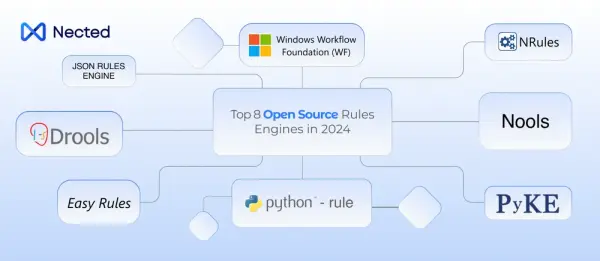



.webp)
.svg)
.webp)
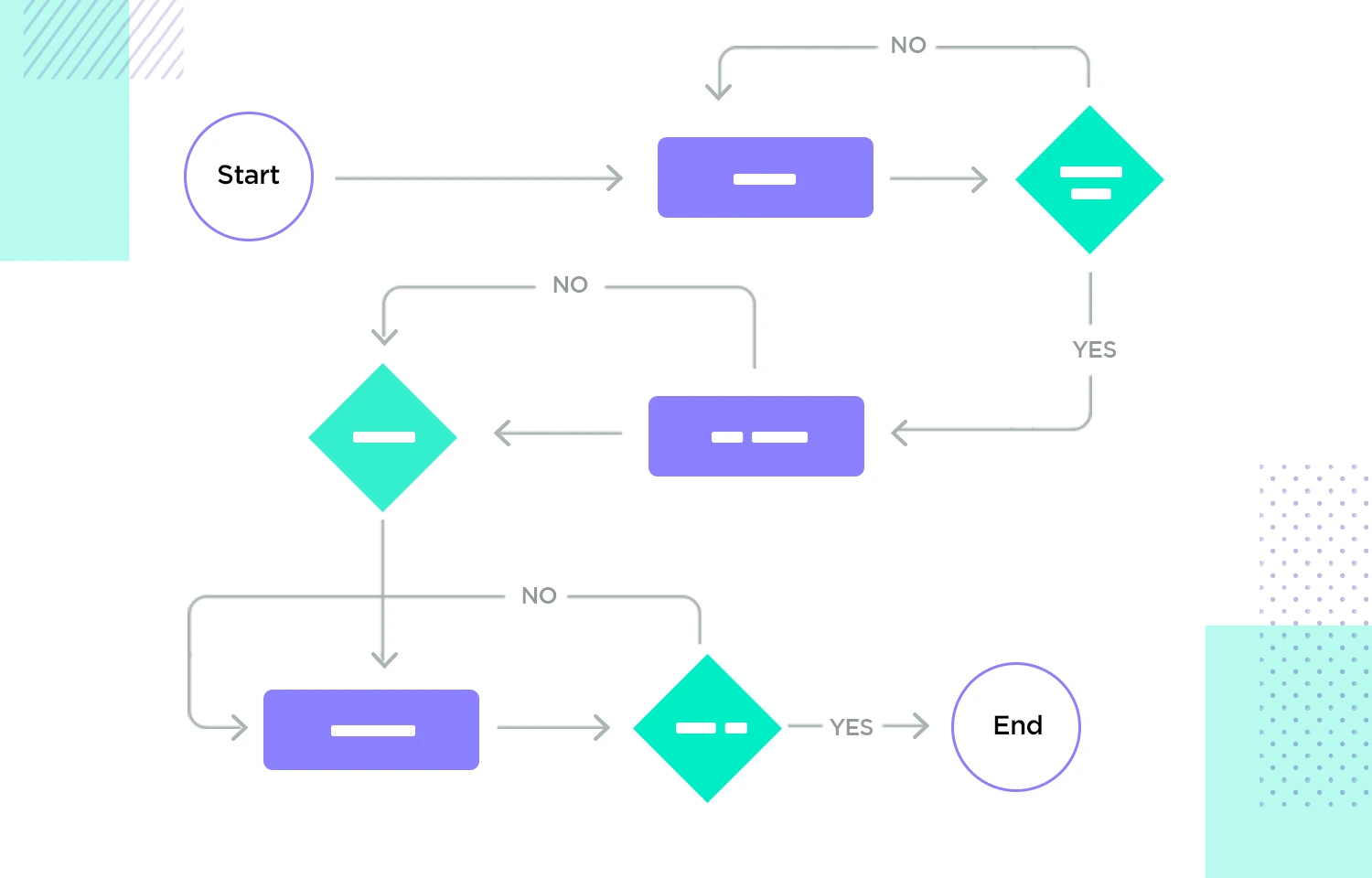
.webp)

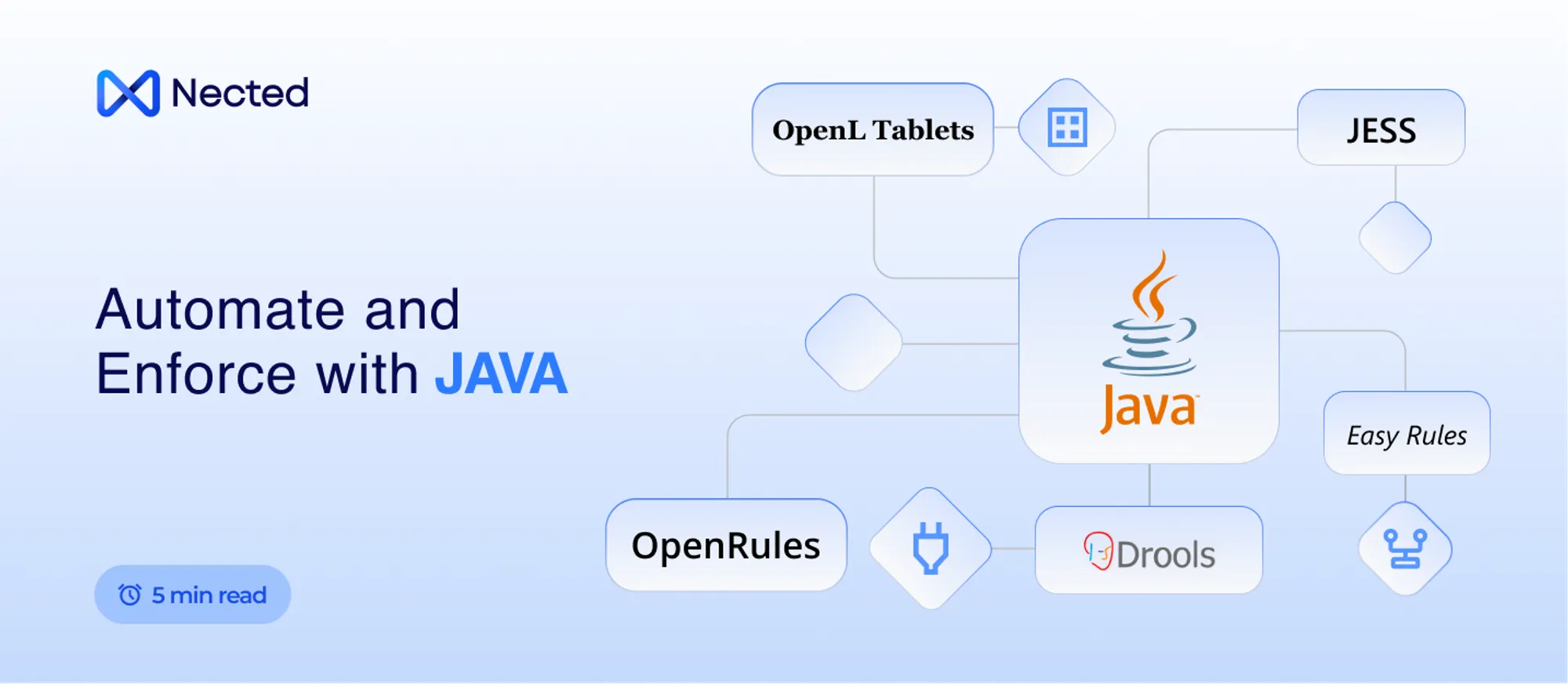
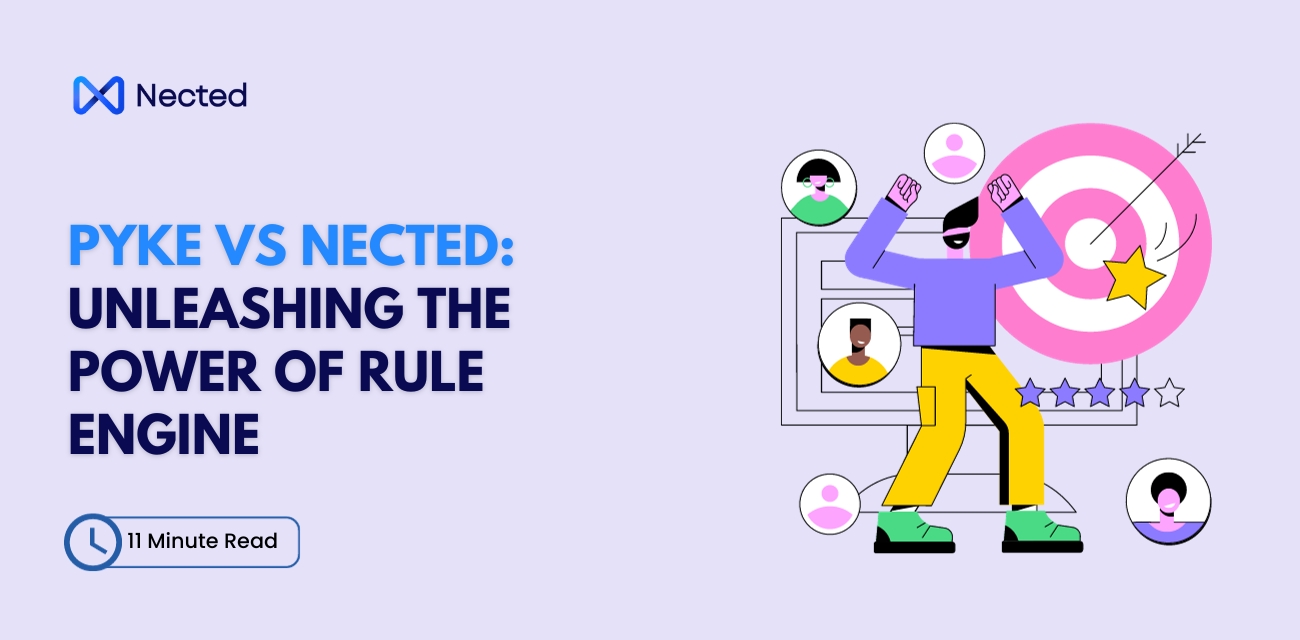
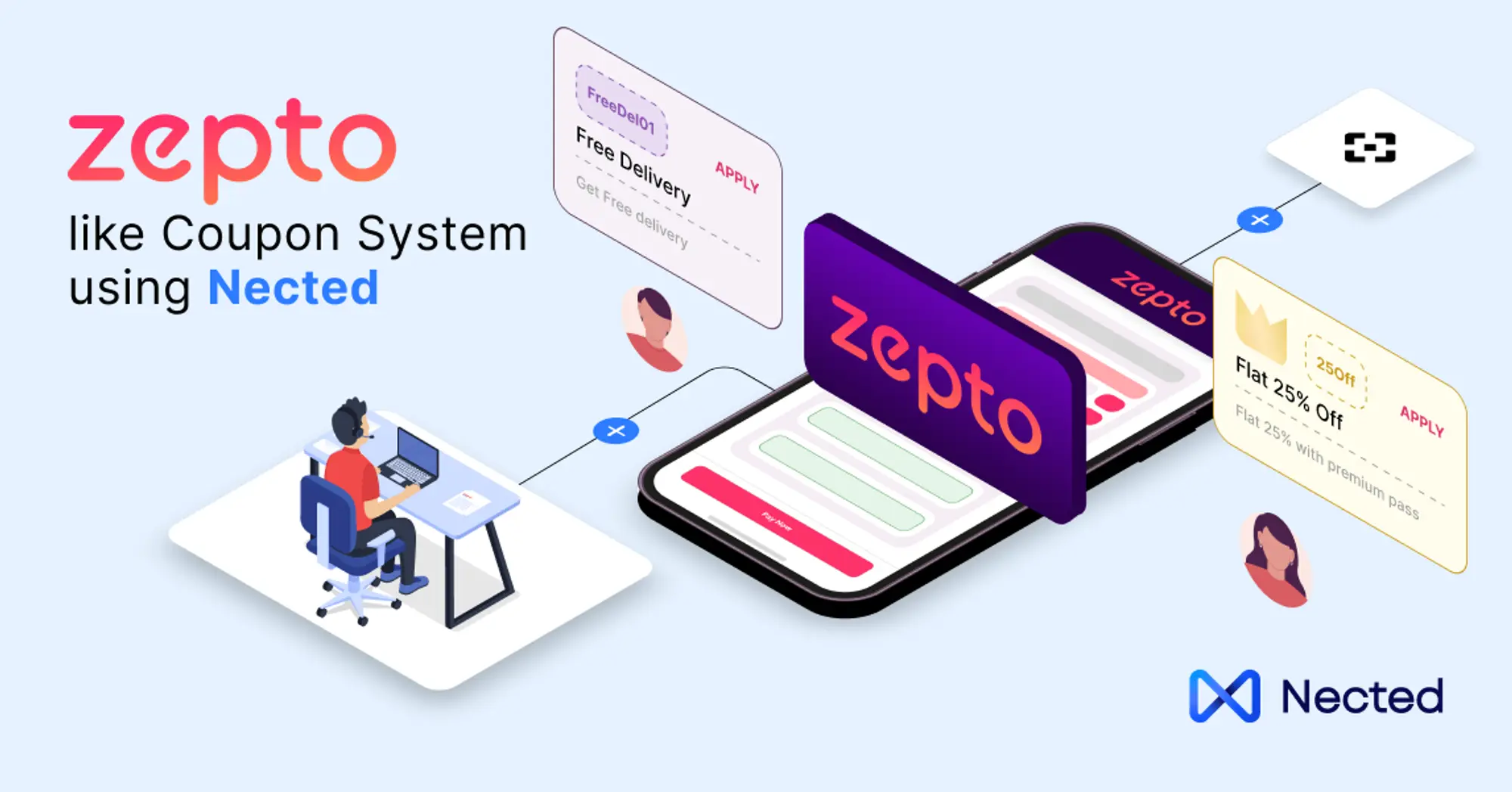
.webp)




.svg)
.webp)




.webp)

.svg.webp)
.webp)
.webp)


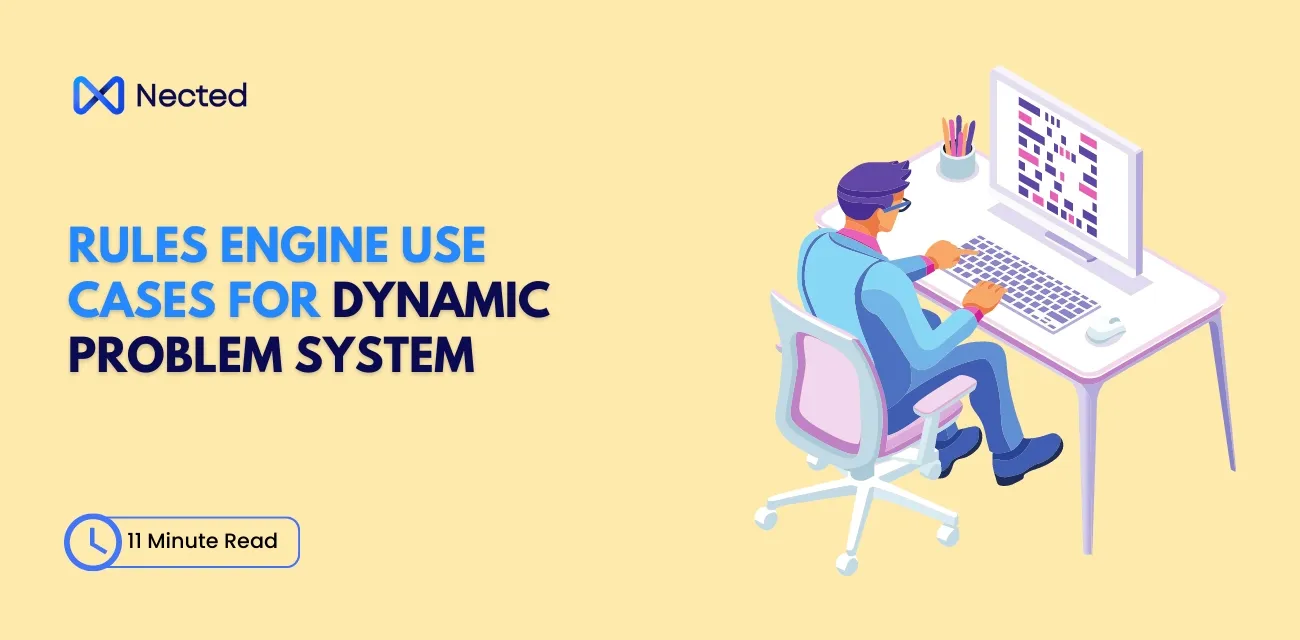



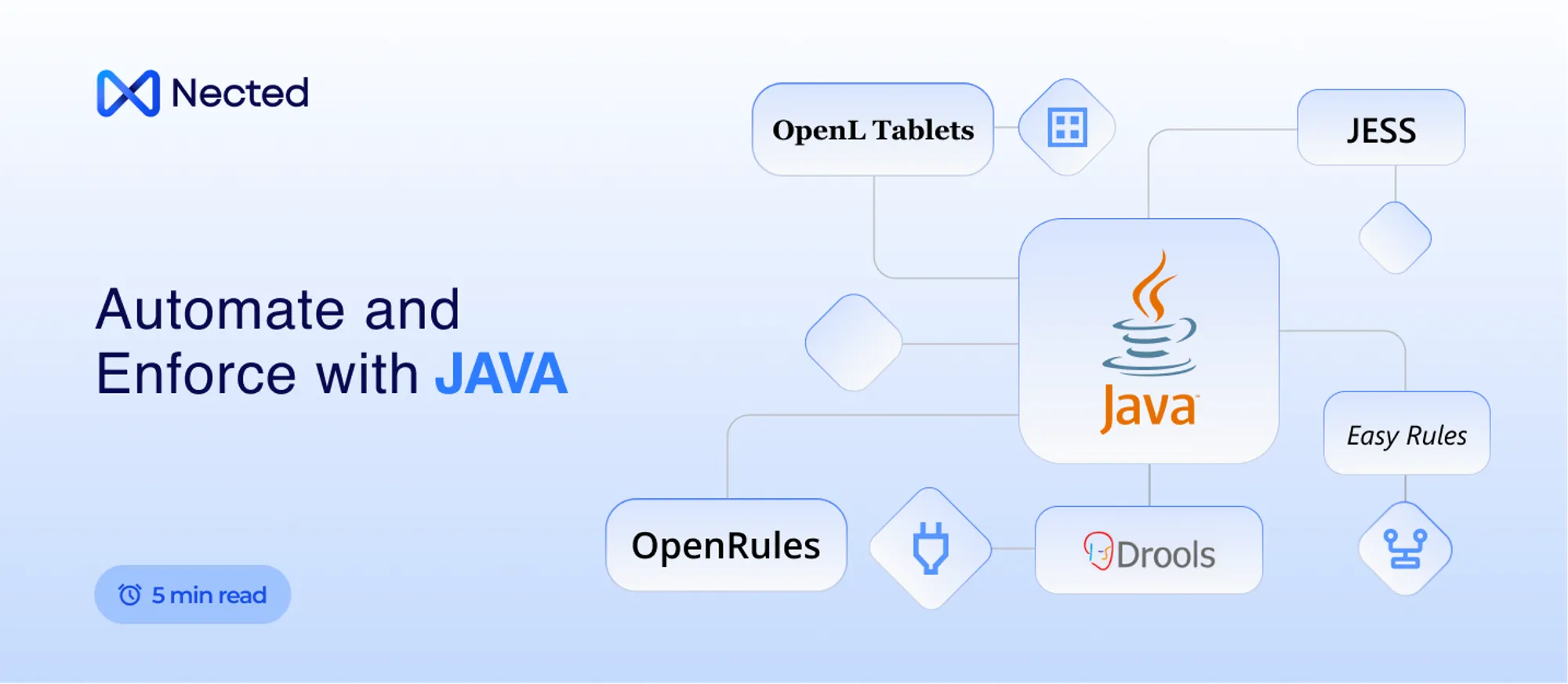


.webp)

%20m.webp)
.webp)
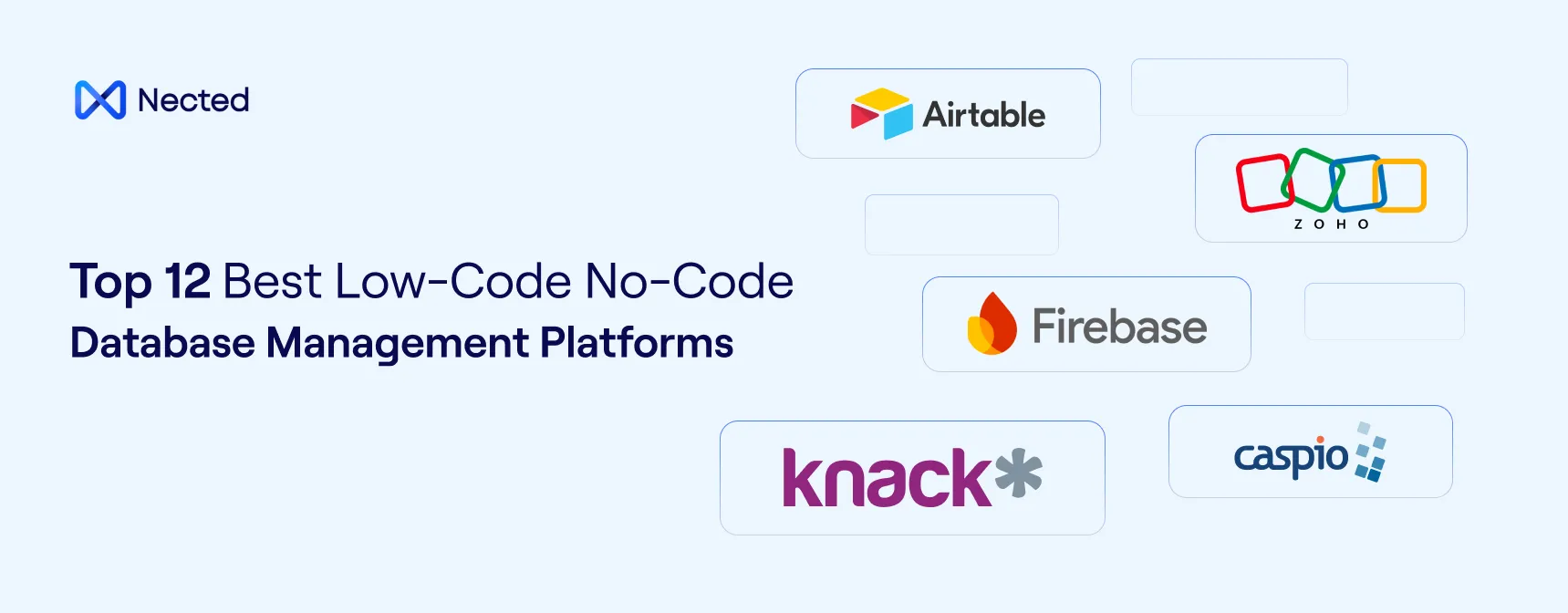


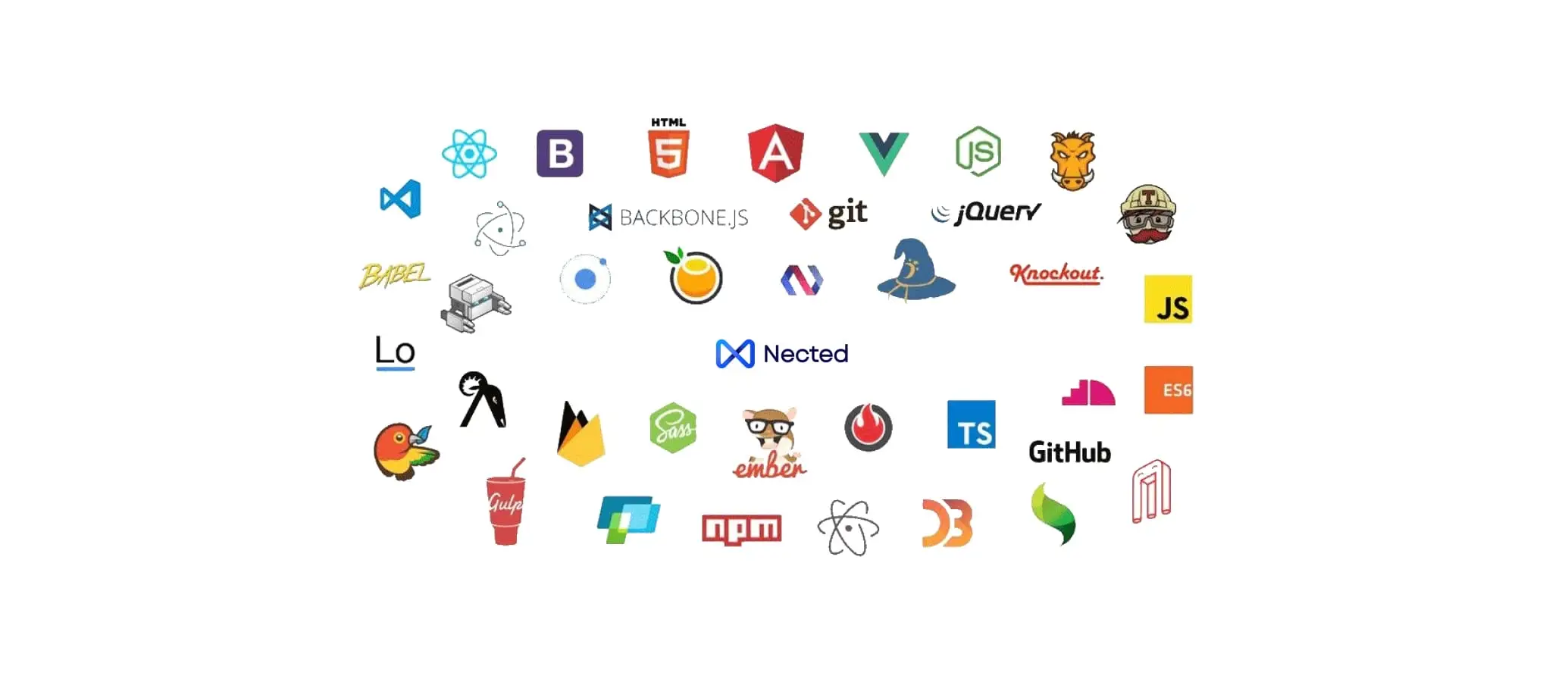

.webp)





%20(1).webp)
